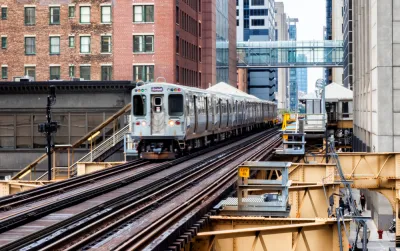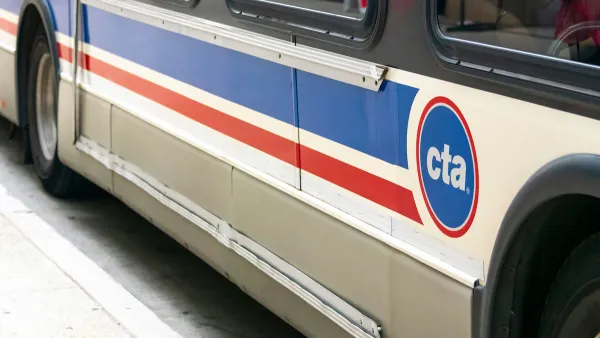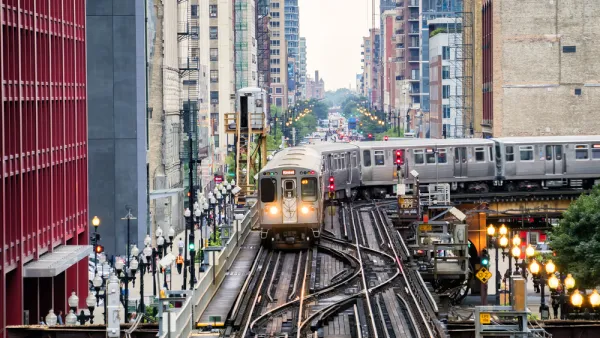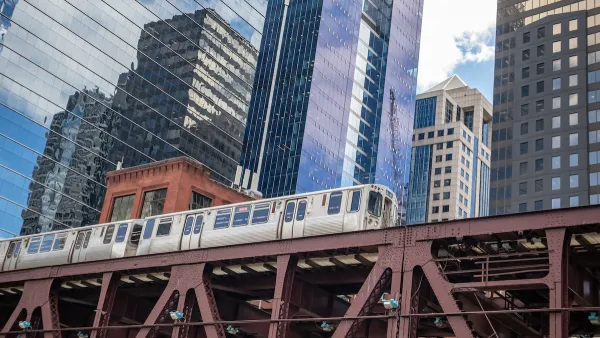The region’s transit riders could see major fare hikes and reduced service if agencies don’t find new ways to make up for reduced fare revenues.

Without new funding sources, the Chicago Transit Authority could be forced to raise fares and reduce service by 2026, warns Dan Zukowski in Smart Cities Dive.
The Regional Transportation Authority of Northern Illinois acknowledges the heavy reliance of Chicago-area transit agencies on fare revenue is unsustainable. The agency faces a $730 million budget shortfall in 2026.
The RTA released a five-year strategic plan that seeks to address this and other problems facing the region’s transit. “Advocacy issues include finding additional funding for transit operations and infrastructure that reduce the Authority’s reliance on the farebox. Action items aim to address public safety concerns, accessibility, customer convenience and transitioning to a near-zero emission regional transit system.”
If the plan fails to gain political support and bring in the needed funding, Zukowski explains, “One-way fares for Chicago Transit Authority elevated trains, Metra trains and Pace buses would double. That would make Chicago’s trains and buses some of the most expensive in the country, the RTA states in the plan document.” The plan admits that this could backfire and lead to even lower ridership.
Zukowski points out the long history of public transit in Chicago, where the first elevated train began running in 1892 and more than a million people use the region’s trains and buses daily.
FULL STORY: Chicago transit users could see fare hikes, service cuts without new funding sources

Analysis: Cybertruck Fatality Rate Far Exceeds That of Ford Pinto
The Tesla Cybertruck was recalled seven times last year.

National Parks Layoffs Will Cause Communities to Lose Billions
Thousands of essential park workers were laid off this week, just before the busy spring break season.

Retro-silient?: America’s First “Eco-burb,” The Woodlands Turns 50
A master-planned community north of Houston offers lessons on green infrastructure and resilient design, but falls short of its founder’s lofty affordability and walkability goals.

Test News Post 1
This is a summary

Analysis: Cybertruck Fatality Rate Far Exceeds That of Ford Pinto
The Tesla Cybertruck was recalled seven times last year.

Test News Headline 46
Test for the image on the front page.
Urban Design for Planners 1: Software Tools
This six-course series explores essential urban design concepts using open source software and equips planners with the tools they need to participate fully in the urban design process.
Planning for Universal Design
Learn the tools for implementing Universal Design in planning regulations.
EMC Planning Group, Inc.
Planetizen
Planetizen
Mpact (formerly Rail~Volution)
Great Falls Development Authority, Inc.
HUDs Office of Policy Development and Research
NYU Wagner Graduate School of Public Service




























